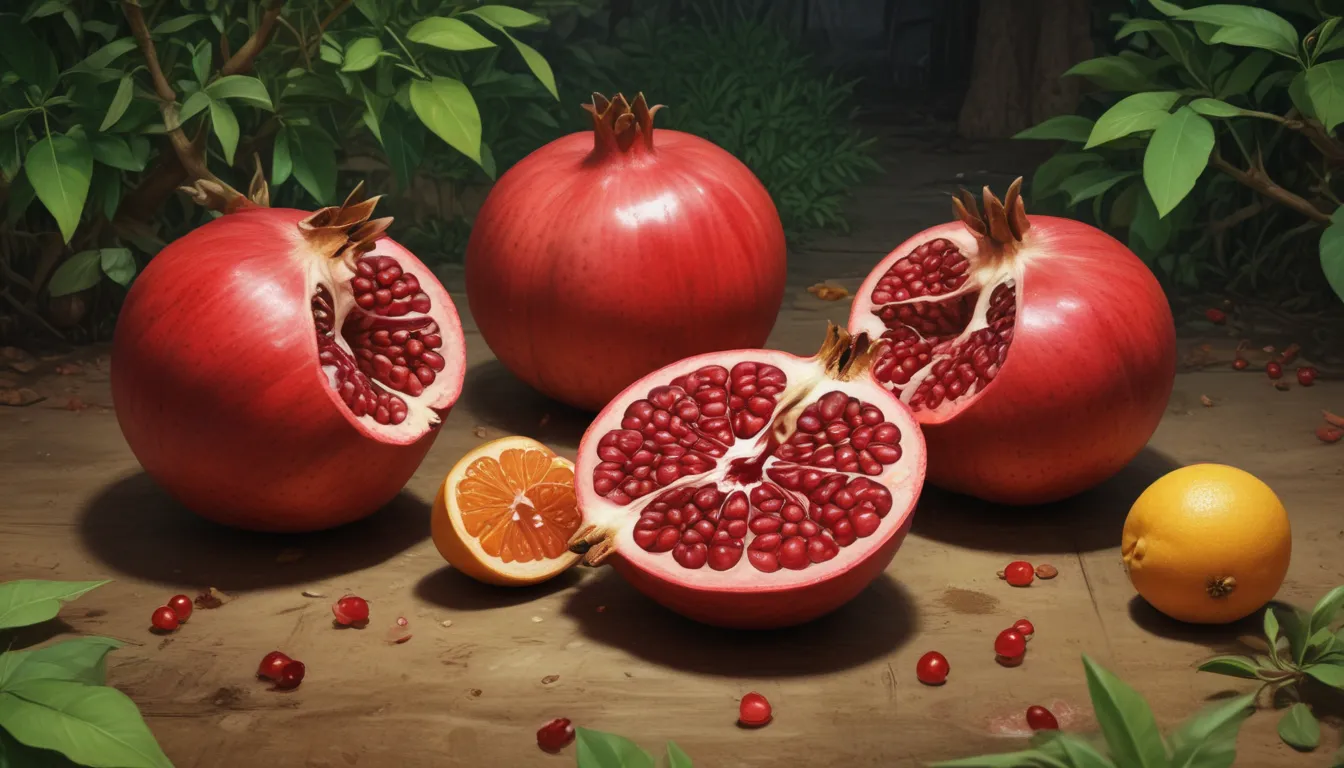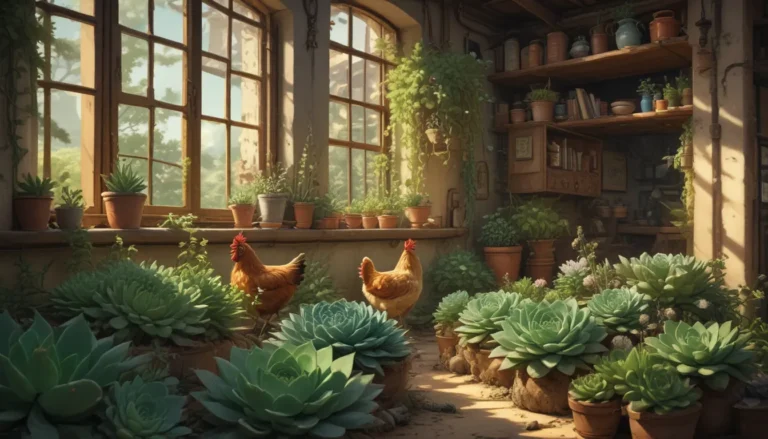Comprehensive Guide: Understanding Pomegranate Fruit Cracking and Splitting

So, you’ve planted a pomegranate tree, Punica granatum, with high hopes for a bountiful harvest in the years to come. As you patiently wait for the tree to mature and bear fruit, you may encounter various challenges that can affect the quality of the fruit produced.
One common issue that pomegranate growers face is fruit cracking or splitting, where the once-promising fruit turns into a mess of exposed, decaying arils still attached to the tree. But fear not, as this phenomenon can be mitigated with a better understanding of the underlying causes and preventive measures.
In this comprehensive guide, we will delve deep into the factors that contribute to pomegranate fruit cracking and splitting, as well as provide practical tips to help you ensure a successful harvest.
Why Do Pomegranate Fruits Split on the Tree?
Several key factors can lead to fruit cracking and splitting in pomegranate trees. Understanding these factors is crucial to preventing this common issue and ensuring a healthy yield. Let’s explore some of the main reasons behind fruit splitting:
- Water Stress
- Nutrient Deficiencies
- Temperature Fluctuations
- Overripening
- Heart Rot Disease
Is It Safe to Eat Split Pomegranate Fruits?
Before we delve into the causes and prevention of fruit cracking, it’s essential to address a common question: Is it safe to eat split pomegranate fruits? The good news is that split fruits are not necessarily ruined. By closely inspecting the fruit and ensuring the arils remain protected and moist, you may salvage split fruits for consumption. However, beware of signs of disease or rot, as these fruits should be discarded to prevent further spread of pathogens.
Now, let’s explore each factor contributing to pomegranate fruit cracking in more detail:
Water Stress
Pomegranate trees thrive in semi-arid to arid conditions and require adequate water during the blooming and fruiting seasons. Insufficient water supply can lead to fruit dehydration and cracking, particularly during periods of high temperatures.
To prevent water stress, ensure your pomegranate trees receive at least one inch of water per week, especially in regions with low rainfall. Installing an irrigation system can help maintain optimal soil moisture levels and prevent fruit cracking due to water stress.
Tips for Preventing Water Stress:
- Provide one inch of supplementary water per week
- Consider installing a drip or micro sprinkler system for efficient watering
- Monitor soil moisture levels and adjust watering frequency as needed
Nutrient Deficiencies
Despite their hardiness, pomegranate trees may face nutrient deficiencies in poor soil conditions, leading to stunted growth and fruit development issues. Deficiencies of essential nutrients like potassium and calcium can result in fruit cracking and splitting.
To prevent nutrient deficiencies, conduct soil testing to assess the nutrient levels in your planting area. If deficiencies are detected, apply suitable fertilizers to restore the soil’s nutritional balance and support healthy fruit development.
Tips for Preventing Nutrient Deficiencies:
- Conduct soil testing to identify deficiencies
- Apply appropriate fertilizers to correct nutrient imbalances
- Monitor plant growth and fruit development for signs of deficiencies
Temperature Fluctuations
Rapid or extreme temperature changes can also trigger fruit cracking in pomegranate trees. Sudden shifts from low to high temperatures can cause fruit dehydration and swelling, leading to rind damage and splitting.
While it’s challenging to prevent temperature-induced cracking, ensuring adequate soil moisture and providing shade or protection from extreme temperatures can help mitigate the risk of fruit splitting.
Tips for Protecting Plants from Temperature Fluctuations:
- Maintain optimal soil moisture levels
- Provide shade or protection from extreme temperatures
- Monitor weather forecasts and take preventive measures accordingly
Overripening
Pomegranates, like many fruits, have a natural growth cycle that culminates in overripening. When left on the tree past their prime, pomegranate fruits may split open, dispersing seeds and sustaining the species.
To prevent overripening, harvest pomegranate fruits at the right time, as indicated by subtle changes in color and texture. By monitoring the ripeness of the fruits, you can prevent premature splitting and ensure a successful harvest.
Tips for Preventing Overripening:
- Monitor fruit ripeness and harvest at the right time
- Look for subtle changes in color and texture to determine ripeness
- Prevent fruits from overripening to avoid premature splitting
Heart Rot Disease
Heart rot, caused by the fungus Alternaria alternata, is a common disease that affects pomegranate trees, leading to split, rotten fruits. This fungal infection can remain dormant until the fruit develops, causing internal rotting and split fruit symptoms.
While there is no cure for heart rot, early application of fungicides can help prevent the spread of the disease and protect pomegranate fruits from infection.
Tips for Preventing Heart Rot Disease:
- Apply fungicides early in the growing season
- Monitor trees for signs of heart rot infection
- Learn more about pomegranate diseases and prevention strategies
Embrace the Rewards of Growing Pomegranates
Despite the challenges of fruit cracking and splitting, growing pomegranates can be a highly rewarding experience. The distinctive flavor, nutritional value, and aesthetic appeal of pomegranate fruits make them a valuable addition to any garden or orchard.
Whether you’re a novice pomegranate grower or a seasoned expert, understanding the factors influencing fruit quality is essential for a successful harvest. By implementing preventive measures and monitoring your trees regularly, you can enjoy a healthy yield of pomegranate fruits free from cracking and splitting.
Share Your Pomegranate Growing Experience:
Have you encountered fruit cracking or splitting in your pomegranate trees? We’d love to hear about your experiences and see photos of your successful harvests in the comments below!
For more insights into growing fruiting pomegranates, check out these guides:
- How to Grow and Care for Pomegranate Trees
- Propagating Pomegranates from Seed
- 9 of the Best Pomegranate Varieties to Grow at Home
Remember, with the right knowledge and care, you can overcome the challenges of fruit cracking and enjoy the abundant rewards of growing pomegranates!
*





